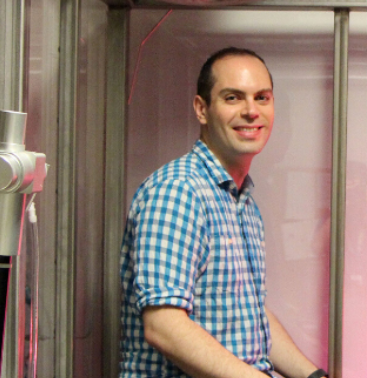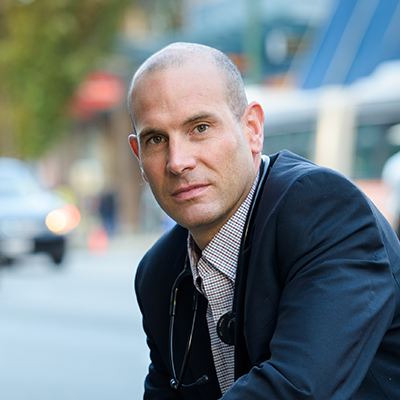
Dr. Chris Rider
Researcher, Air Quality & Lung Health
A promising young investigator and postdoctoral researcher at UBC Respiratory Division’s Pollution Lab at Vancouver General Hospital, Dr. Chris Rider completed his PhD at the University of Calgary and today is applying his expertise to examine how air pollution alters immune responses in COPD and asthma.
BC Lung Foundation research grant recipient Dr. Chris Rider is a postdoctoral researcher at the UBC Air Pollution Exposure Lab overseen by respirologist Dr. Chris Carlsten at Vancouver General Hospital. Watch a short video about Dr. Rider's research study.
What is the focus of your team's research?
We're digging deeper into initial research that suggests when people with asthma breathe in air pollution, such as vehicle exhaust, vital asthma medications are less effective.
Millions of Canadians are exposed to unacceptably high levels of air pollution. Most of us, for example, living in cities are exposed to emissions from industry and vehicles. In rural settings, people are often exposed to wood smoke and wildfire smoke. While air pollution harms everyone exposed, it is particularly damaging to people with lung diseases, such as asthma – the most common chronic respiratory condition, affecting about 10 percent of BC’s children and adults.
The best daily treatment for asthma is a family of medications called corticosteroids. Corticosteroids can be inhaled through a puffer or taken as pills by mouth. However, when people with asthma breathe in air pollution, such as vehicle exhaust, there is some evidence that the medications stop working well.
What do you hope to achieve?
We want to discover if air pollution blocks the activity of corticosteroids, making asthma symptoms worse. A better understanding could also be used to advise people on how to optimize their medication use in more polluted environments, for developing more effective medications (or down the road - add on medications), or for advising on public policy changes to reduce the impact of air pollution exposure.
I am hoping by achieving a clearer understanding of how air pollution impacts asthma treatment we can optimize medication effectiveness and better inform policies and regulations on air quality to protect vulnerable populations.


